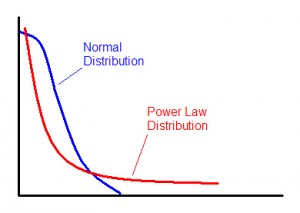neotopia
(Editor’s note: this article covers a product which is considered in development; it is anticipated that should it in fact be produced, details may change over time.)
by Phoenix, HSM team writer
Sony’s announcement of Home’s complete and total shutdown hit the media on Friday, September 26, 2014 — and so did rumors of an apparent attempt at a third-party successor, Neotopia: the new and possibly improved reimagining of Home, bespoke to the PS4.
Madmunki, the group that brought Spunland to Home, are behind the re-envisioning of its successor; Neotopia. There are some notable Home veterans on their team, including Ed Gladwin; although several dev groups (VEEMEE, Hellfire Games and possibly Atom Republic) have come forward with plans and secret projects along some familiar virtual lines, this interesting group of alums seem to have their gameplan ready to roll, but for a small detail: money.
Hence, the new Kickstarter campaign for Neotopia.
 Relatively little concrete information is available about Neotopia at this stage, save for what is conceptually planned. The primary focus appears to be on two-way communication with an engaged user base, where users vote on every aspect of the virtual world, from beginning theme to possible purchasable content solely created by the Neotopia developers. It is seemingly a less-than-subtle criticism of SCE’s practice of rarely overtly acknowledging its Home user base’s feedback, which is perhaps the easiest way to drive engagement when there’s nothing solid to look at. Hopefully that feedback and enthusiasm will be backed up with currency.
Relatively little concrete information is available about Neotopia at this stage, save for what is conceptually planned. The primary focus appears to be on two-way communication with an engaged user base, where users vote on every aspect of the virtual world, from beginning theme to possible purchasable content solely created by the Neotopia developers. It is seemingly a less-than-subtle criticism of SCE’s practice of rarely overtly acknowledging its Home user base’s feedback, which is perhaps the easiest way to drive engagement when there’s nothing solid to look at. Hopefully that feedback and enthusiasm will be backed up with currency.
Unlike Home, Neotopia will apparently not have the drive from competing development studios for consumer purchases. Profits will be reinvested into the platform to keep it thriving and growing. Neotopia will be powered by the Unreal Engine, promising current-gen avatar creation and customization, as well as state-of-the-art graphics like those seen in current popular games. The upside of using UDK is that the graphical capabilities are far in excess of what most other commercially available engines (such as Unity) can provide, without undue cost or complication (such as the PhyreEngine). The downside of Unreal is that a percentage of gross profits must be given to Unreal in exchange for using the engine.
The developers behind Neotopia promise they’ve learned from Home’s mistakes and successes, as well as those of many other social platforms. Users will find familiar content in the form of public and personal spaces that are customizable, just as before. There will be special events in the public spaces, as well as regular events. Voice and text chats will be available as before. For those that enjoyed the club life, and the running of a club, Neotopia will have clubs and group functions. There is even to be a calendar of sorts to keep up with scheduled events.
 Something new from this group, and mentioned before as a unifying addition to a virtual world, is the introduction of in-world currency for Neotopia. Users will purchase currency from the PSN store and use it in-world for acquisitions: everything from personal spaces to clothing, furniture and accessories. In my opinion, this does a great deal to help Neotopia feel like a cohesive, interconnected world; one of Home’s great weaknesses, as this publication has identified before, is that Home was a decentralized metaverse with a conspicuous lack of jobs, currency or unifying activities.
Something new from this group, and mentioned before as a unifying addition to a virtual world, is the introduction of in-world currency for Neotopia. Users will purchase currency from the PSN store and use it in-world for acquisitions: everything from personal spaces to clothing, furniture and accessories. In my opinion, this does a great deal to help Neotopia feel like a cohesive, interconnected world; one of Home’s great weaknesses, as this publication has identified before, is that Home was a decentralized metaverse with a conspicuous lack of jobs, currency or unifying activities.
Thus I am in favor of this step for Neotopia, though I caution it is easy to lose track of real-world spending; while you see it as only virtual scrip, you’re spending real money to acquire it, and should do so responsibly.
Another interesting proposed addition is a kudos system, to show likes and appreciation for items and spaces. Social MMO experiences stand to benefit greatly from a solid background in behavioral economics, and even rudimentary data-mining tools which expose consumer trends can be very insightful. In particular, what users actually monetize on, versus what hyperbole they espouse, is of critical importance.
There are some concerns, however.
While I can see this as an attractive and refreshing possibility for disenfranchised Home expats, I can also see how Home started out much the same way — in theory. Go back and re-read the original Home FAQ — put together during the Phil Harrison pie-in-the-sky days, we might add — which promises UGC tools and far more. Just as any new virtual world promises a loving and democratic peaceful existence, the reality is that the greatest weakness of any social MMO that has no overt purpose for its existence faces a constant battle against its weakest link: its own users. When the focus of a social MMO is to share a virtual world with other people — and that is essentially the end unto itself — then there must be robust tools which empower the user to deal with abuse and trolling on the spot.
There are other problems as well:
-
What is the use case for Neotopia? Building a virtual world just because you think the Home formula worked is insufficient. Any application must have a distinct use case — a hook — which drives people to at least try out the experience. In the case of Home, its hook was that it was supposed to be the centerpiece (the home) of the entire PS3 experience. Though that didn’t happen, it was sufficient to grab enough users to sustain a growth pattern. Neotopia, as a much smaller third-party endeavor, has no such hook; this is especially dangerous given that the market for social media and competing social MMO experiences (IMVU, Second Life, Twinity, Entropia, Habbo, Avakin, etc.) has exploded since 2005. Without a compelling use case, Neotopia faces the same design criticism that Home faced, which Richard Garriott summed up best — that any social metaverse without a clearly-defined purpose is doomed to fail.
- How will Neotopia overcome the user-side technical hurdles Home faced? There’s a reason console-based social MMO experiences are few and far between: when the sole conduit to your MMO is a console, the majority of your users will not be equipped with a keyboard, and thus severely handicapped when it comes to in-world communication. This is a problem Home never solved; the quick-chat system was unwieldy and hopelessly limited, open-mic public chat was a disaster, and group mic chat was fraught with problems both social and technical. The lack of keyboard is a significant barrier to entry, and even the most expensive console MMO experience in the world right now — Destiny — couldn’t figure out how to overcome it.
-
What is Neotopia’s plan for long-term discoverability? Home had the advantage of being a first-party product that was placed directly onto the PS3 XMB; coupled with its freemium model, tens of millions of users downloaded the application, of which a (very) small percentage remained and an even smaller percentage monetized. All freemium commerce models are driven by a power-law distribution curve, in which the bulk of the revenue is driven by one to three percent of the users, while over 95% of the user base monetizes very little (if at all). Thanks to the law of large numbers, Home had a viable business model. Neotopia, on the other hand, is just another third-party software application which will have a lead-up campaign, a week of store discoverability, and then relegation to the catalogue, without the funds to buy additional store placement. As such, it seems highly unlikely at this stage that Neotopia will build a large enough audience to sustain itself in those critical early days.
- Is the Neotopia team financially prepared to give away the house in order to build up an audience? Discoverability is an issue for any software developer on any platform, but an even larger issue is user retention. Back in Home’s early days, when there was precious little to do and even less to buy, a significant amount of expense was incurred with public events and attractions (such as nDreams’ Xi, paid for by SCE) to try to hold people in the app. Indeed, it is a deliciously bitter irony that Japan Home, which some of Home’s most vocal forum users championed as the template of How To Do Things Right, was closed before its larger cousins in North America and Europe largely because it blew its budget on splashy marketing events and still couldn’t retain enough users. Neotopia has no such marketing budget behind it, and thus must have a very compelling self-contained experience on day one if it is to monetize and grow virally.
 How will Neotopia reconcile user feedback versus user spending habits? There are well-known examples of Home products which were developed and/or altered based on user feedback, usually not justifying the expense in doing so. For instance, Home consumers generally didn’t understand that republishing active items with smaller memory slots rarely justified the cost of the additional development and QA time, and “earning consumer goodwill” meant exactly dick on the balance sheet, because there was a significant disparity between the forum loudmouths and actual consumer spending habits. Building a virtual world on a pitch of pleasing the rabble will attract the rabble (and their baggage), but it may lead to a sobering discovery that the majority are all mouth and no wallet. This, in turn, exposes a critical design mistake referenced earlier: building a world on user feedback means haphazard growth, which is far less compelling than having a strong design concept — a fantastic use case — which inherently attracts people to experience it. Neotopia may find itself devoid of its luster and shine in a short time, under the strain of so many demands from fickle users.
How will Neotopia reconcile user feedback versus user spending habits? There are well-known examples of Home products which were developed and/or altered based on user feedback, usually not justifying the expense in doing so. For instance, Home consumers generally didn’t understand that republishing active items with smaller memory slots rarely justified the cost of the additional development and QA time, and “earning consumer goodwill” meant exactly dick on the balance sheet, because there was a significant disparity between the forum loudmouths and actual consumer spending habits. Building a virtual world on a pitch of pleasing the rabble will attract the rabble (and their baggage), but it may lead to a sobering discovery that the majority are all mouth and no wallet. This, in turn, exposes a critical design mistake referenced earlier: building a world on user feedback means haphazard growth, which is far less compelling than having a strong design concept — a fantastic use case — which inherently attracts people to experience it. Neotopia may find itself devoid of its luster and shine in a short time, under the strain of so many demands from fickle users.
We certainly wish Neotopia the best of luck with its Kickstarter campaign, which at the present time appears to be far short of its goal. If they are successfully funded, we can only hope they have answers to these critical design, business and infrastructural questions. Given the team they have in place, it will be interesting to see if this concept flies.
Related resources:
Neotopia’s Kickstarter campaign: https://www.kickstarter.com/projects/1222510567/neotopia
Neotopia’s Facebook: https://www.facebook.com/neotopiaSocial
Neotopia’s Twitter: @neotopian
Share
| Tweet |





Yeah. I understand. Neotopia has some giant hurdles to overcome. My biggest fear is that 3 or more new Home replacements will come to PS4 causing the user base will be spread too thin over them and all will fail. However I throwing 10 Quid to these guys and wishing them luck!
Anyone else?
The other “worlds” are not “worlds” at all on the PS4, they are expansions of game areas that those developers had in PlayStation Home. Such as VeeMee’s idea which will likely be an expansion of Acorn Meadows Park, and Hellfire Games new Home Tycoon. Their Avatars are not an upgrade either and they will not be using the Unreal Engine. Only Neotopia is the true successor to PlayStation Home, it’s focus will be good active moderation and new tools to deal with trolls, social stability. Right now it just needs to get off the ground. I have referred friends to Neotopia as I am considering not continuing play on PSN. However, I do support Neotopia completely as there will not be any true virtual world on the PS4 anytime soon without it. I still love virtual worlds, I don’t love what was done with PlayStation Home.
a.) Usage of a particular graphics engine does not guarantee success. (I’m a fan of UDK, but graphics alone do not a virtual world make.)
b.) Active moderation and social stability are par for the course when planning a social MMO; they are not stand-out features unto themselves.
c.) Being viewed essentially as “Home 2.0″ may not exactly be the best pitch to gaming press if they’re looking to generate a positive reaction. Which gets back to the question the author brought up about what Neotopia’s use case actually is.
It will be interesting to see what Madmunki’s plan is to deal with the unresolved questions brought up in this article. We wish them only the best of luck.